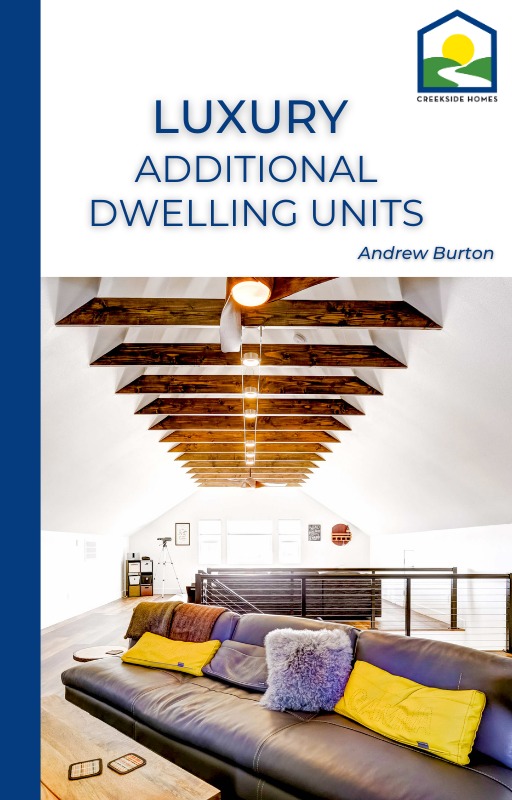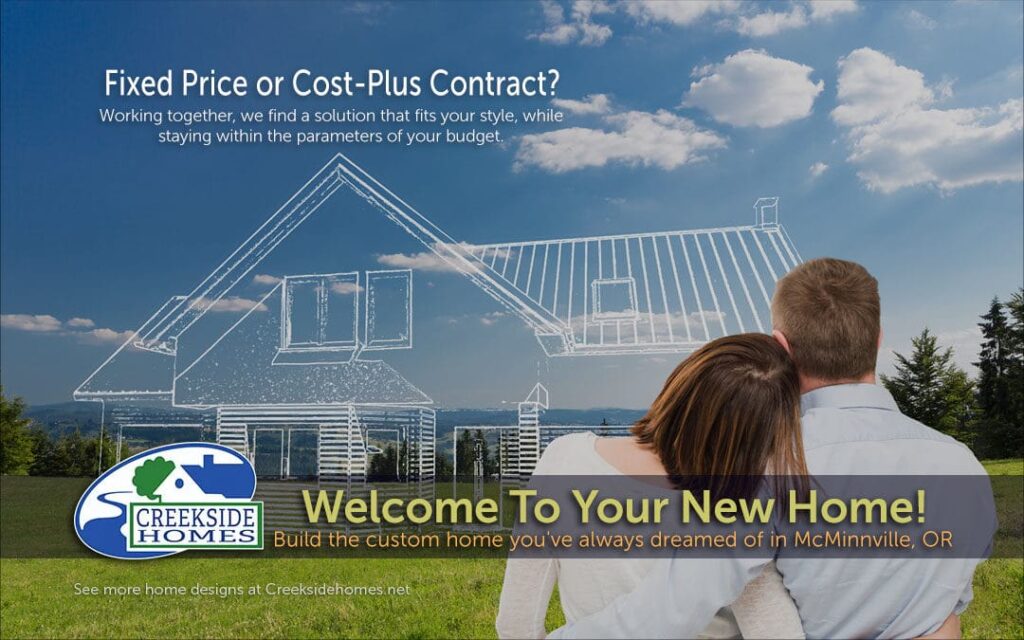Constructing a Custom Home and Shopping for a Builder?
You’re inching closer from the dream to the reality of building a custom home. You have purchased the lot and you’ve narrowed down your budget. The next hurdle, to find the right builder. This person must be someone you trust, like and is competent. Beyond that, they must also have a contract that you are willing to work with.
There are two contracts that we will focus on; fixed-priced and cost-plus agreements. Each contract can be used successfully when building a custom home and the builder’s costs will be the same regardless. However, there are different risks associated with each contract, which could affect the price you pay.
Fixed-Price Contract
With a fixed-price contract, the price you pay for your home is predetermined (fixed). It is not subjected to any adjustments unless certain provisions have been included within the agreement (i.e. change orders due to additions by the homeowner, above and beyond what was included in the original contract).
For the owner, the bonus of a fixed-price contract is that the price is known upfront. The builder will need to come up with a budget that will include the scope of work to be completed, along with all labor and materials needed for the home. This provides a homeowner with the security of the exact cost of their build.
Now, this does come at a price. There is a premium for locking in the total cost of the contract. The builder is taking on the risk of building at a set price. For example, with market fluctuations, the builder may expect to pay a certain amount for lumber at the start of the project. However, the lumber costs may rise as construction is about to break ground, in that case, the builder will need to absorb those extra costs. The opposite is true as well, the market may trend downward creating a saturated market of lumber. In this case the builder benefits.
Homeowners who choose fixed-price contracts are not comfortable risking price fluctuations. They are more confident knowing the exact cost of the build and are willing to pay a small premium to the builder for this comfort.
Cost-Plus Contract
A cost-plus contract takes the actual price to build the home and adds a fee for the builder’s overhead and management. This can be either a lump sum or a percentage of the total cost. The true amount of the project will not be known until the final accounting is complete after the home has been built.
Obtaining an estimate upfront is key. Not only does this help you formulate your budget but it allows you to understand the costs associated with building your home. But be aware, this is only an estimate, the total costs will not be tallied until the build is complete.
However, if you are using a qualified and trustworthy builder, they will provide you with an accounting along the way. This would include proof of expenses, detailing the direct and indirect expenditures. This levels the playing field, allowing you and the builder to be on the same team.
When you work as a team, it provides a synergy of identifying problems and determining a solution that is best for everyone. For example, the flooring that you picked out months ago is ready to be ordered but is now discontinued. As soon as this predicament presents itself, your builder should reach out to you with options. Choices should be provided to you, similar to what you initially picked out and close to your budget. Working together, you can find a solution that fits your style, while still staying within the parameters of your original pricing.
The final cost of your build when using a cost-plus contract is dependent on the choices that are made throughout the build. Included in this cost is the management fee the builder charges after the home is completed. This fee is lower than a fixed-price contract, as the home builder is assuming less risk.
Regardless of the contract that you choose, the key to ensuring there are no major roadblocks, disagreements and stress is communication! Make sure you have done your due diligence on the builder first and foremost. Conduct interviews with multiple companies, review their references and the previous homes they have built.
Additionally, make sure you have gone over the scope of work to be completed. Are the details of the build clear to you? Are you comfortable with the choices you’ve made? More importantly, do you understand the costs associated with building your custom home?
Finally, make sure it is in writing! Review and approve the budget prior to permitting. Do not make assumptions, even on items that seem small. If it has not been detailed or in writing, costs can skyrocket, with you left holding the bag.
Although a custom home build is a stressful time for new homeowners, it can be lessened by being prepared. Ensure that you have a solid contract, open lines of communication and a clear understanding of the scope of work. Working with your builder, your new home will be a success because of the collaborative effort from start to finish.












